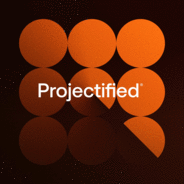The world of business will look different after COVID-19, setting the stage for project professionals to lead the way into the next normal.Lindsay Scott, PM Network career columnist and co-founder of Arras People, London, England, shares how skills development—including certifications and specialized training—and maintaining your professional network can help project professionals prepare for the competitive job market to come. She also talks about how young project leaders can find their voices and bring their perspectives to help create change.Mike DePrisco, vice president, global experience & solutions, PMI, Newtown Square, Pennsylvania, USA, talks about the online version of the Project Management Professional (PMP)® certification exam. Also: three free courses from PMI to help project leaders continue their professional development from home.Key themes [01:58] Prepare for competitive job market by developing skills, maintaining professional network[08:34] Using certifications, specialized training to stand out from other applicants[11:58] The value of servant leadership[15:40] Young project professionals finding their voice, bringing their perspectives to create change[17:56] PMP certification exam now available online [23:22] Free courses, digital resources from PMI to upskill while working from home [25:26] Project professionals can help world recover after COVID-19

Wirtschaft
Projectified Folgen
Projectified[R] is your guide to the future of project management. Created by Project Management Institute, this podcast is for people who lead strategic initiatives and collaborate on teams to deliver value to their organizations. It features dynamic thought leaders and practitioners who share their real-world experiences and expertise to inform, inspire and prepare you for success.
Folgen von Projectified
185 Folgen
-
Folge vom 20.05.2020Career Outlook After COVID-19
-
Folge vom 06.05.2020Managing RiskThe coronavirus pandemic has highlighted the importance of risk management. David Hillson, PhD, PMI Fellow, founder of The Risk Doctor Partnership, Petersfield, England, discusses identifying and analyzing risk in innovative and novel situations. Dr. Hillson says COVID-19 isn’t currently a risk—it’s a problem—and the risk management task is to look at the uncertainties that could come next.Mohamad ElHelaly, PMI-PBA, PMI-RMP, PMP, assistant project manager at Orascom Construction, Cairo, Egypt, shares his top lesson learned from previous projects: Change is inevitable. He also talks about how risk management shouldn’t work in a silo and should be integrated into project processes and decisions.Key themes [02:11] Identifying, analyzing risk in innovative scenarios[03:39] Risk’s effect on objectives, managing threats and opportunities [06:00] Look for uncertainties to come from COVID-19[11:35] Flexibility, resilience in society, organizations, projects and people[13:36] Lesson learned: Change is inevitable; you must adapt[16:23] Integrating risk management into all project processes
-
Folge vom 22.04.2020Projects for the PlanetOn Earth Day, ProjectifiedTM looks at projects to preserve the planet. Devan Wardwell, director of growth at Forest Carbon in Jakarta, Indonesia, discusses a project to restore peatlands. He also talks about using satellite data and sensors to monitor the project’s progress and make data-driven decisions.Michael Sweet, PhD, a researcher at the University of Derby in Derby, England, and an officer of the International Coral Reef Society, discusses two projects aimed at restoring coral reefs—one focused on abandoned fishing gear, the other, a physical restoration project. He also shares the challenges facing coral rehabilitation projects, including disease and rising sea temperatures.Key themes [03:03] Restoring peatlands in Indonesia[06:30] Satellite data, sensors help project teams make data-driven decisions[11:34] Helping coral reefs by removing abandoned fishing gear and physical restoration projects[14:36] Challenges to coral rehabilitation projects
-
Folge vom 15.04.2020The Future of TeamingThe Project Economy calls for a new look at the structure and dynamics of project teams. Ingrid Smith, head of PMI’s Thought Leadership in London, England, shares the power skills that will help teams succeed. She also discusses the importance of empathy while working on virtual teams and how ready-for-anything teams are agile, collaborative and put the customer first.Peter Moutsatsos, PMP, chief project officer at Telstra in Melbourne, Australia, shares how the organization’s shift to agile at scale has improved team flexibility and changed the focus to measuring outcomes. He also says teams should be created to fit a particular project challenge.Key themes [01:53] Using power skills to succeed in The Project Economy[05:22] Ready-for-anything teams are agile, collaborative and put the customer first [07:12] Empathy’s importance in virtual teams[09:42] Creating greater team flexibility through agile at scale at Telstra[13:56] Shifting sponsors to drive teams[19:30] Building the right teams for particular project challenges
